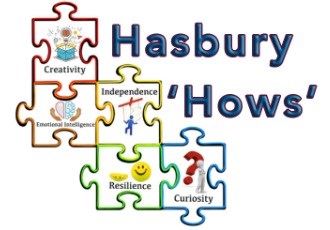Our Curriculum
General Intent
Our curriculum is built on strong pedagogical concepts where the diversity of our school is reflected in the curriculum we deliver. It is broad and balanced, with opportunities for pupils to celebrate, share, and learn about their different cultural and spiritual beliefs.
Through our curriculum, we develop the essential knowledge, skills and understanding which are building blocks for later life. Our curriculum not only emcompasses the formal requirements of the national curriculum, but goes beyond the experiences of the classroom to ensure that our children are exposed to the richest and most varied opportunities that we can provide. At St Margarets our curriculum prepares the children with essential knowledge and skills for their future. The exploration of new knowledge and skills helps to nurture children’s independence, resilience, creative thinking, emotional intelligence and curiosity.
Implementation
Skills and knowledge are taught discreetly in subject areas so that our children gain a broad understanding of each subject and know exactly which subject they are studying. However, the curriculum is designed to embed transferable skills throughout. At St Margarets at Hasbury Primary School, we recognise the importance of feedback, both adult and peer, as an integral part of the teaching and learning cycle, and aim to maximise the effectiveness of its use in practice. We are mindful also of the research surrounding effective feedback and research from cognitive science regarding the fragility of new learning. In response to this, planning is flexible and responsive to pupils’ needs.
The curriculum is based on good quality resources. We believe that our fundamental task is to teach our children to speak clearly and articulately and to read and write effectively. Reading across all curriculum areas is a priority to extend and deepen pupils understanding and use of vocabulary. We want pupils to develop a love of reading during their time at St Margarets and be exposed to a range of classic and contemporary literature. The use of the class libraries, class shared texts and termly visits to the local library are pivotal to this. English is taught through quality whole class texts, and in Mathswe follow a mastery approach where all pupils are taught to their year group expectation with challenge for the more able and support for those who need it. We have developed the curriculum to help reflect and represent the diversity of our children. Creativity and teacher expertise is woven into the curriculum with specialist teachers and outside agencies working with pupils and teachers, sharing good practice and ensuring that learners learn from the best.

Continuing Professional Development for all staff is a priority to ensure they have the necessary skills and knowledge to deliver the highest standards across the entire curriculum. Leaders have the necessary expertise to play a pivotal role in both the design and delivery of their subject area; ensuring a clear progression of both skills and knowledge across all year groups.They can confidently articulate how learning is re-visited and developed year-on-year, to ensure a real depth of learning right across the school.
We plan our lessons with clear learning objectives. We base these upon the teacher’s detailed knowledge of each child, striving to ensure that all tasks set are appropriate to each child’s level of ability. Our lesson plans make clear the expected outcomes for each lesson. We make a note of those individual children who do not achieve at the expected level for the lesson, and we use this information when planning for the next lesson. We also keep this information as a record of the progress made by the class.
Day‐to‐day, on-going assessment is a crucial method of assessment which provides instant feedback to the teacher and ensures progress within every lesson. AfL strategies are used in all lessons. These strategies provide a clear picture of a child’s level of understanding and, ensure that teachers can quickly assess when a child does not understand and needs greater support. Lessons should be flexible enough to allow teachers to adapt to the needs of the child. AfL should also be used to inform planning for subsequent lessons.
Progress is assessed regularly. At the end of each term, assessment data is gathered and progress is checked by subject coordinators and the SeniorLeadership Team. Children are expected to make good or better progress in all subjects and this individual progress is tracked. In cases where children are identified as making ‘slow progress’ in English or Maths, rapid interventions are put in place to address gaps in learning.



